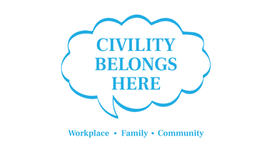- Jan 8, 2016
- 2 min read

Most people will advise you to set large challenging goals at the start of a new year. ‘Dream big’ you are told because you will never know what you are capable of achieving unless you push yourself. That’s good advice. However, the problem with big goals and visions is they won’t make your world a better place.
Research from McKinsey suggests that over 70% of all change programs fail. The reason for these poor results is not because the goals were not big enough. It’s because the leaders could not get enough people to execute the plan. Consistent daily action is what makes life better…or worse…at work and home.
If you want to Win The Day more often, set small goals that you are 100% confident you can start and finish in less than 1 hour. Little goals produce big results when you achieve them on a regular basis.
Sir Isaac Newton’s first law of motion explains why small goals work so well. The first law says that an object at rest tends to stay at rest, and an object in motion tends to stay in motion. If you do nothing, you will never go anywhere. If you’re going in a specific direction, unless something happens to you, you will keep making progress. Forever.

However, it’s not good enough to just get started. Unfinished projects are a major source of unhealthy stress. When you start and finish something worthwhile, you feel like a winner; and when you win, you want to win again. When you lose, you get discouraged and tend to stop taking positive action. Don’t worry about lowering your standards. I believe you will accomplish way more with small goals than you will by setting larger ones. Human beings have a strong desire to win, to make a meaningful contribution to a worthy cause and keep growing. You just need to get some positive momentum working for you.
A few months ago, I was told I needed to start drinking more water. My goal was to consume eight 8-ounce glasses of water every day. I struggled with that objective until I changed my goal this week to taking one sip every hour. I went from having a hard time finishing 3 glasses to consuming 10 with ease every day. Each time I picked up the 24-oz. water bottle on my desk to take a sip, I wound up taking much more. When I planned to finish all 24 ounces at one time, I rarely picked it up.
What’s important to you right now? What relationships do you want to improve? What projects do you want to complete? What can you do this hour that would help you make some progress on those objectives?
Remember…Start Fast. Finish Fast. Repeat.
Let’s Get Better. Together! Bill Durkin
































Comments